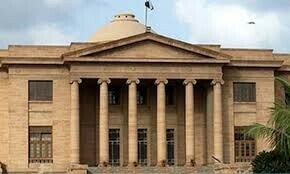LARKANA: The execution of twin giant schemes — Rehabilitation and modernisation of Sukkur and Guddu Barrages — with 80 per cent funding from World Bank, has been started.
This was stated by Irrigation Secretary Dr Saeed Ahmed Mangnejo who undertook an extensive visit to the sites along the right and left banks of River Indus.
Speaking at a press conference at the local press club on Friday, he said that the estimated cost of the two schemes was Rs36 billion. Giving a break up, he said the Guddu Barrage rehabilitation would cost Rs16bn and that of Sukkur Barrage Rs20bn. He said 80pc of the funding was being provided by World Bank.
Mr Mangnejo said that the remaining 20pc cost of Sukkur Barrage scheme would be shared equally by federal and Sindh governments.
He claimed that 20pc work on the Guddu Barrage scheme had been completed, adding that both the schemes were projected to be completed within the next three years but “we are trying to accomplish the task six months ahead of schedule”.
The irrigation secretary informed reporters that six gates of Sukkur Barrage were being manufactured at the Karachi Shipyard. The process of dismantling the islands that have developed at the barrage along the river’s course will be started soon, according to him.
In reply to a question about the status of talks between Sindh and Balochistan on water-sharing dispute, he said at the recent round of secretary-level talks in Karachi, it was felt that it was a technical issue that resulted in the dispute. He said that constant silting up of the beds of North Western Canal and Saifullah Magsi branch was found to be hampering water distribution between the two provinces. The system of measuring water installed at the distribution point was also not working properly, he noted.
Both provinces agreed in principle to either raise the canals’ banks or go for an extensive de-silting exercise to get the problems solved once and for all, he said.
Responding to a question about implementation of the 1991 Water Accord and the allegation that Punjab was stealing Sindh’s share in water, the secretary said Sindh had long been complaining about non-implementation of the accord. “We bear a 35-40pc shortage. Sindh government has concerns over this ... in order to get the issue resolved, a committee headed by the attorney general of Pakistan was formed and the committee has been holding meetings to study the ins and outs of the matter. It will hopefully present its report soon in the Council of Common Interests (CCI), where Sindh’s stance will prove correct.”
Accompanied by the chief engineer of the right bank and other officials, the irrigation secretary said that in the wake of water distribution issues and expected flood season, he undertook an extensive visit to specific sites to inspect dykes and vulnerable points along both banks of the Indus right from Guddu to Sujawal. In view of the flood season, leaves of irrigation staff had been cancelled so that they could keep a close eye on these dykes and vulnerable points.
Mr Mangnejo said that work for the strengthening of dykes by constructing spurs and studs under different schemes was almost complete now. Due to the execution of these schemes, the Indus had changed its course from the right to the left bank at certain points, he said.
If this had not “been done, floodwater would have directly hit these dykes and caused difficulties,” he said.
According to the secretary, at present 282,000 cusecs of water is flowing downstream Sukkur and it may touch a maximum of 500,000 cusecs in the peak season. In case the volume of ice-melting is high and more water comes from India, this may cause a rise in water level.
Regarding water theft, he claimed that due to tough measures and registration of over 600 such cases, the department had succeeded in providing water to the tail-end areas of Warah, Shahdadkot, Saifullah Magsi, Johi (47 miles in length) and other irrigation channels. He recalled that a good number of unauthorised pipes installed in Saifullah Magsi branch to drive away Sindh’s irrigation water to Balochistan had been removed.
Also, he said, Rangers’ assistance was there to improve the water distribution system. “We are pondering over toughening the existing laws to deal with the water theft issue,” he said, adding that a proposal for the establishment of an ‘emergency response force’ was also under study.
Published in Dawn, August 10th, 2019















































Dear visitor, the comments section is undergoing an overhaul and will return soon.